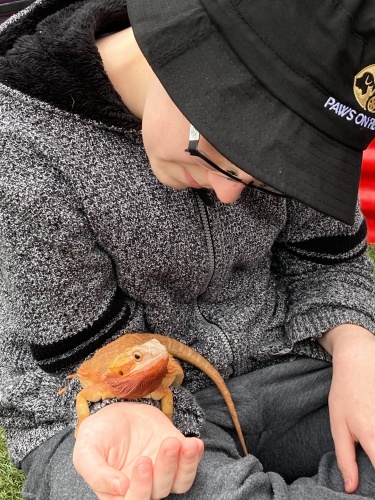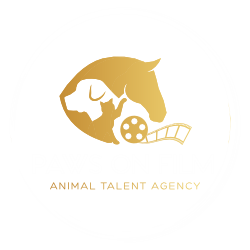
At Paws on Film we offer an Occupational Therapy (OT) program that has a focus on improving children’s ability to complete daily activities that are important to them, whilst interacting with animals. Find out more about Occupational Therapy.
Our highly trained therapy animals support skill-building, motivation and engagement in OT sessions. Animals provide immediate external feedback based on our actions, which can support your child’s goals.
If you are interested in learning more about our Occupational Therapy program, please contact our admin team on 0457 006 938 or email admin@pawsonfilm.com.au
OTHER PROGRAMS WITH OUR ANIMALS
Put simply – OT helps you do the things you need or want to do! These things are called occupations because they occupy your time. A child’s main occupation is to learn and play.
OT helps people improve their ability to complete the daily activities that are important to them. You or your child may see an OT if they are having difficulty doing everyday things because of physical, cognitive, or sensory challenges such as a disability or developmental delay. OTs focus on your strengths and can assist with different areas of development including helping to build skills around:
WHAT DOES AN OT ACTUALLY DO?
An OT will meet with you to discuss your or your child’s strengths, support needs, goals, and any barriers that are making it difficult to achieve those goals. This can include the OT completing assessments and observing how you or your child completes daily activities related to those goals. The OT will work together with you and may provide strategies/advice to build your or your child’s skills, try new ways of doing things, or adapting the environment to better support your needs.
FREQUENTLY ASKED QUESTIONS
What if I don’t want to discuss my child’s challenges in front of them?
You or the OT can request a parent only session which can be done in person or over phone/video call. This provides an opportunity to freely discuss any challenges or concerns you or your child may be experiencing.
How are the therapy animals used in OT sessions?
Paws on Film has a range of highly trained therapy animals to support skill-building, motivation, and engagement in OT sessions. Animals provide immediate external feedback based on our actions which in combination with strategies from the occupational therapist supports working towards your goals. This will look different for every client and will depend on your individual goals. For example, the animals could be used to:
Can I use NDIS funding to see an OT?
Yes, if you have funding in the Capacity Building Daily Activity category and are self-managed or plan-managed. The OT can help you prepare for an NDIS planning meeting or review.
Do I need to provide an NDIS plan or other documentation to the OT?
It is helpful to receive a copy of your NDIS goals and any recent reports or diagnostic assessments so the OT can better understand your or your child’s strengths and challenges. It is important that the OT can work together with you and any other therapists or health professionals supporting you or your child.
What information is in an OT assessment or report?
An OT report can include information and recommendations about your:

FILM & TV ENQUIRIES
Lauren Sellwood
0421 787 183
lauren@pawsonfilm.com.au
Luke Hura
0418 106 046
luke@pawsonfilm.com.au
ALL THERAPY SERVICES ENQUIRIES